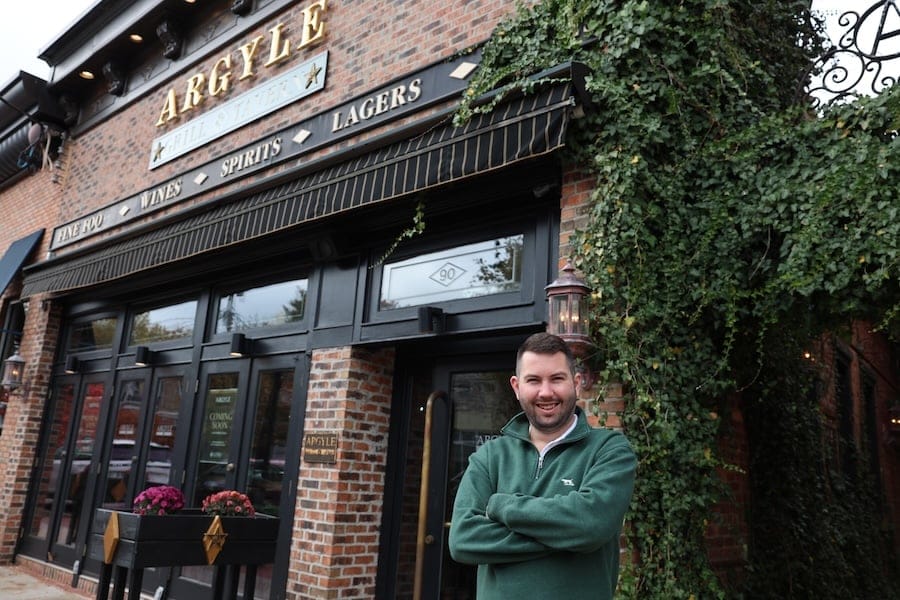
Greater Long Island coverage is funded in part by Toresco & Simonelli, a boutique injury and family law firm in West Islip. They fight for their clients. Click here to learn more and to get in touch.
Working multiple jobs.
Getting cash gifts from family.
Living with parents to save money.
Through these ways, or a combination of above, Long Islanders at or below 35 years old are still somehow making homeownership happen here — despite a median home price that has skyrocketed to $775,000 in Nassau and $651,000 in Suffolk.
But it’s hardly accessible to a large chunk of this demographic.
And to be sure, many are still waiting on the sidelines, hoping prices drop drastically.
But local realtors do not see that happening, at least not soon. If ever. Greater Long Island has interviewed several to get a lay of the land.
Quick takeaways:
- If you don’t have lots of cash on hand, you are unlikely to get a home.
- Saving for the huge upfront cost of homeownership has probably never been more daunting for first-time homebuyers, for multiple reasons.
- Many young buyers are getting help from family, mainly parents, in one form or another.
[Click here for Greater Long Island newsletters. We’ll keep you posted.]
Bidding wars
In this market, where each house that’s priced right receives offers almost immediately and the offers are almost always above the asking price, it’s the buyers with the highest amount of money down that are considered during the bidding war.
So it’s not enough to come with an offer of 5 percent down, says Jamie Winkler, a realtor of 39 years who in 1993 opened Winkler Real Estate in West Islip.
Cash is king.
“Keep in mind,” added Stephen King of Realty Connect USA, “that with these bidding wars, in order to win, you have to be the most qualified buyer in 95 percent of the circumstances. Those people will always have 15 to 20 percent down.”
For a $600,000 home, that’s $90,000 to $120,000. Just to have a shot.
[Are you under 35 and recently purchased a home?
Email [email protected] to tell your story.]
Getting the money
This is Long Island, of course, where our teachers, police officers and other civil servants are well compensated.
Not only that, they’re able to borrow from their own pensions at low rates, and this is something that Keith Dawson of The Dawson Team of Signature Premier Properties is seeing often.
Other realtors interviewed for this report agreed.
For the rest of the population, family is increasingly needed for some form of help.
Either way, forget about the days of a single income, middle class home-owning family.
Winkler says her typical younger clients have combined annual salaries of at least $200,000. Not only that, they’ll have the cash on hand for at least a 20 percent down payment to avoid paying for PMI – Private Mortgage Insurance – in order to purchase a $600,000 or $700,000 home.
King said two incomes has become a must, for better or worse.
But King, who operates out of Patchogue, said he’s seeing couples pool resources and save money much more often than outright borrowing or getting gifts from parents — though many do move in with parents to save, which is a form of assistance.
He’s also had clients who’ve worked multiple jobs to scrimp and save.
However, in and around Bay Shore to the west, Eric Ramsay of Ramsay Realtors, said a “substantial” number of first-time homebuyers that he’s seeing are getting help from parents “in light of the skyrocketing prices of Long Island and the overall cost of living increases.”
“In my opinion, anywhere from 50 to 60 percent are getting help from somewhere, whether it’s grandparents, aunts and uncles, and of course parents. It’s just extremely difficult right now for young couples to afford homes and it doesn’t seem like prices are coming down anytime soon,” Ramsay said.
According to data released this year from a Redfin-commissioned study, 36 percent of younger buyers in the market were expected to get a cash gift from family to help with down payments. (Dawson is also seeing this often on Long Island’s North Shore.)
To compare, just 18 percent of millennials used a cash gift from family to help fund their down payment in 2019, according to a Redfin survey from that time, the report reads. Redfin deemed these buyers “nepo-homebuyers,” short for nepotism.
In a statement, Redfin’s chief economist Daryl Fairweather regretted the overall trend.
“Nepo-homebuyers have a growing advantage over first-generation homebuyers,” he said. “Because housing costs have soared so much, many young adults with family money get help from mom and dad even when they have jobs and earn a perfectly respectable income.”
“This contributes to wealth inequality and often prevents young people from gaining economic ground on their peers who come from more privileged backgrounds. The American Dream is just as much about class mobility as it is the home with a white-picket fence, and the housing affordability crisis has made both elements of the dream harder to attain. ”
King said he hasn’t been seeing those high percentages in his primary market around Patchogue, and called the report typical of the national media and its reporting of millennials, his generation, when it comes to home-buying.
“I see millennials busting their asses every day and going out there and buying homes,” King said. “And all the media does is scream and shout ‘poor millennials.’ They complain for them and turn them into victims, so now so many are sitting on the sidelines while the others are buying. And for those young people who bought two years ago at $500,000, now they’re sitting on $100,000 of equity.”
In short, you buckle down, work hard, and make it happen, he said.
“Go ask your grandparents who bought their home at $35,000, if they could really afford it at the time,” King said.
The future
King says no matter what happens with mortgage rates and, with that, home prices, the market has accepted that Long Island homebuyers are willing, and can now pay, about $4,500 a month for a decent home.
It’s about the monthly payment, and what the market can bare.
So if rates drop, prices are likely to go up, he said.
Winkler doesn’t see an end to the troubles either for would-be first-time homebuyers. “No, sorry to be negative,” she said, while pointing to the simple law of supply and demand as the only way to make buying a home more accessible.
Few homes are for sale, she said, because so many homeowners who are sitting on 3 percent fixed mortgage rates can’t afford to sell their homes and move — at more than double the rate for a new mortgage.
“Real estate is very much 101,” she said. “It’s a function of supply and demand. So if there’s a normal amount of supply, then it goes back to basics” and the prices will get under control. “It’s all related to the [high] mortgage rates right now.”
“We’ve had a minimum of five years straight of low supply and high demand,” she continued.”And when I thought [home prices] could never get higher, they kept getting higher.”
The takeaway from these realtors:
No market factors are ever going to make houses that much less expensive on Long Island.
But if things level out with supply and demand, perhaps the bidding wars stop and sellers will start considering all buyers, even those with less cash on hand.
“Hopefully prices can kind of cool down and homeownership can be more affordable in the future,” Ramsay said. “But I think a lot of people, and their parents, are starting to realize that’s not likely to be the reality on Long Island.”
Winkler said the issues with people 35 and younger — once referred to as the Boomerang Generation because many were forced to live with their parents through their 20s — go back much further than a lopsided housing market.
Many graduated to poor job markets, and then when things finally got rolling, the pandemic hit, and then came historic inflation.
“So they’re either living in a modest apartment or living with their parents in order to save money,” Winkler said.
Young people with good salaries, she said, increasingly have wonderful apartment options, especially in Bay Shore due to complexes such as Shoregate or many of the Greenview Properties projects, but those could cost $3,500 to $4,000 a month or more.
So they can enjoy their 20s, but can’t save money.
She echoes American businessman and investor Warren Buffet when asked for advice to anyone, at any age, looking to build an estate:
Always live below your means.
“Basically, young people tend to cater too much in their lives to going out, having a good time,” she said. “You have to put a limit on it. You have to live on a budget.” Then the money will come.
— top photo courtesy of Stephen King/King of Homes on Facebook


























